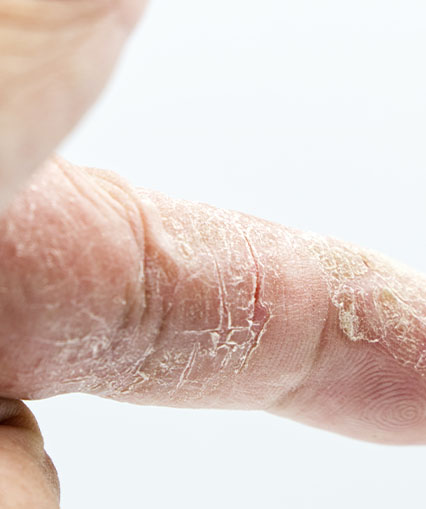
What is Dry Skin?

The skin comprises two layers: the outer layer, known as the epidermis, and the inner layer, known as the dermis. Both layers contain cells that produce moisture. When there is less environmental moisture, the body has extra oil to moisturize the skin. However, when too much oil is made, the excess fat clogs pores and leads to acne breakouts.
When the amount of water in the skin decreases, the skin becomes drier and loses elasticity. As the skin ages, it becomes thinner and more fragile. This causes wrinkles and fine lines.
Before delving into the complexities of dry skin, here’s a quick overview of the four skin types:
Oily Skin
Oily skin produces more oil than other skin types. Excess oil clogs pores and leads to acne. If you have oily skin, look for products containing natural ingredients like shea butter or argan oil. Shea butter has been used for centuries to treat dry skin. Argan oil contains vitamin E, which reduces inflammation and promotes healing.
Normal Skin
Normal skin does not produce as much oil. However, this doesn’t mean that it’s completely free from oil. Normal skin still needs some moisture to maintain its softness. So look for natural moisturizer products such as aloe vera gel, glycerin, and honey.
Combination Skin
This skin type combines both oily and dry areas. As a result, you may notice oily and dry skin patches on your face. For this reason, you need to find a product that treats both skin types. Look for products that include natural ingredients like rosehip seed oil, avocado oil, and almond oil. Rosehip seed oil is rich in antioxidants and vitamins A, C, D, and E. Avocado oil is high in fatty acids and vitamin E. Almond oil is packed with nutrients, including vitamins B1, B2, and B3.
Dry Skin
Dry skin is one of the most common types of skin conditions that affect millions of people around the world. According to the Mayo Clinic, dry skin is characterized by a lack of moisture in the outermost layers of the skin. It occurs when there is not enough oil production in the sebaceous glands. When this happens, the skin loses its natural oils, and as a result, it becomes dehydrated and flaky. According to the American Academy of Dermatology, nearly everyone will experience dry skin by age 60.
To avoid dry skin, look for moisturizing products that contain natural ingredients like shea butter, cocoa butter, and coconut oil. Shea butter is an excellent source of Vitamin E, which helps reduce inflammation and promote healing. Cocoa butter is loaded with antioxidants and anti-inflammatory properties. Coconut oil is high in omega-3 fats, which are great for treating eczema and psoriasis.
If you want to prevent dry skin, try using these tips:
- Use a gentle cleanser. Use a mild soap instead of harsh soap.
- Moisturize daily. Moisturizing your skin every day prevents dry skin.
- Avoid over-cleansing. Over-cleansing can strip away essential oils and leave your skin feeling tight and irritated.
How Do I Know If I Have Dry Skin?
There are many ways to determine whether or not you have dry skin. One way is to check out your hands. Are they cracked, flaky, rough, or chapped? These symptoms indicate that you may have dry skin. Another way to tell is to check your face. Does your skin feel tight, rough, or scaly? These signs mean that you may have dry, flaking. Again, these.
Another way to know if you have dry skin is to take note of any other symptoms. For example, do you suffer from eczema, psoriasis, or dermatitis? These conditions are all caused by dry skin. Dry skin can be classified into atopic, non-atopic, and contact dermatitis. Atopic dry skin is the most common type of dry skin. People who have this type of dry skin tend to have allergies. They are prone to developing allergic reactions when exposed to certain substances.
If you have dry skin, you should note any changes in your skin. For instance, does your skin become red after using harsh soap or shampoo? Does your skin get irritated quickly? If so, it could be time to switch to natural skincare products.
Why is Organic Skin Care Important?
Organic skin care products are free of synthetic ingredients such as parabens, phthalates, mineral oils, petroleum jelly, artificial colors, fragrances, preservatives, sulfates, sodium laurel sulfate, triclosan, and toxic chemicals. They are also typically free of animal testing.
Because of the harmful effects of chemical exposure, avoiding conventional cosmetics is essential. There has been growing concern about cosmetic products’ safety due to dangerous chemicals such as parabens and phthalates. Parabens are used as antimicrobial agents in personal hygiene products, including deodorants, shampoos, conditioners, lotions, and makeup. Phthalates are found in nail polish, hair spray, perfume, hairspray, lipstick, lip gloss, mascara, and sunscreens.
Ingredients to Look For Skincare Products for Dry Skin
Here are some great natural ingredients for skincare products, especially if you suffer from dry skin.
Aloe Vera Gel – Aloe vera gel has been used for centuries to heal wounds and treat burns. It contains vitamins A, B, C, D, E, and K, calcium, magnesium, potassium, iron, zinc, copper, manganese, phosphorus, sulfur, iodine, sodium, chloride, fluoride, and silicon. Aloe vera gel also contains enzymes that promote cell regeneration and increase blood circulation. This helps to reduce inflammation and relieve itching.
Coconut Oil is rich in fatty acids that nourish the skin while protecting against UV rays. In addition, it reduces inflammation and speeds healing. Coconut oil is also rich in lauric acid, which helps maintain healthy skin. It also contains vitamin E, which protects against free radicals. Vitamin E is essential for cell growth and repair.
Jojoba Oil – Jojoba oil is extracted from jojoba seeds. It is high in linoleic acid, which promotes healing and prevents scarring. It also contains antioxidants, including carotenoids, flavonoids, and polyphenols.
Lavender Essential Oil – Lavender essential oil is known for its calming properties. It also effectively treats acne, eczema, psoriasis, sunburn, and insect bites.
Rosehip Seed Oil – Rosehip seed oil is derived from rosehips. It contains vitamins A, C, E, K, beta-carotene, folic acid, niacin, pantothenic acid, biotin, and minerals such as calcium, iron, magnesium, and phosphorous, potassium, and zinc. It primarily benefits those suffering from rosacea, dermatitis, and eczema.
Tea Tree Oil – Tea tree oil is antibacterial, antifungal, antiviral, anti-inflammatory, and antiseptic. It is also helpful for treating athletes’ feet, cuts, dandruff, fungal infections, nail fungus, ringworm, and warts.
Conclusion
In summary, dry skin is caused by a deficiency of oil in the epidermis. There are many natural remedies available to combat this problem. These include aloe vera gel, coconut oil, jojoba oil, lavender essential oil, sea buckthorn extract, tea tree oil, and vitamin E. These can be purchased at your local health food store or online. They all have different benefits and help restore moisture to your skin.
Organic skincare is a highly complex subject. It is essential to understand that the conventional skincare industry has been using synthetic ingredients like those in food and pharmaceuticals for decades and that it makes more sense to use natural products.

